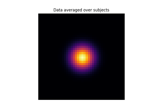mne.stats.ttest_1samp_no_p¶
-
mne.stats.ttest_1samp_no_p(X, sigma=0, method='relative')[source]¶ Perform one-sample t-test.
This is a modified version of
scipy.stats.ttest_1samp()that avoids a (relatively) time-consuming p-value calculation, and can adjust for implausibly small variance values 1.- Parameters
- X
array Array to return t-values for.
- sigma
float The variance estimate will be given by
var + sigma * max(var)orvar + sigma, depending on “method”. By default this is 0 (no adjustment). See Notes for details.- method
str If ‘relative’, the minimum variance estimate will be sigma * max(var), if ‘absolute’ the minimum variance estimate will be sigma.
- X
- Returns
- t
array T-values, potentially adjusted using the hat method.
- t
Notes
To use the “hat” adjustment method 1, a value of
sigma=1e-3may be a reasonable choice.You can use the conversion from
scipy.stats.distributions.t.ppf:thresh = -scipy.stats.distributions.t.ppf(p_thresh, n_samples - 1) / 2.
to convert a desired p-value threshold to 2-tailed t-value threshold. For one-tailed tests,
threshin the above should be multiplied by 2 (and fortail=-1, multiplied by-1).References
- 1(1,2)
Gerard R. Ridgway, Vladimir Litvak, Guillaume Flandin, Karl J. Friston, and Will D. Penny. The problem of low variance voxels in statistical parametric mapping; a new hat avoids a ‘haircut’. NeuroImage, 59(3):2131–2141, 2012. doi:10.1016/j.neuroimage.2011.10.027.
